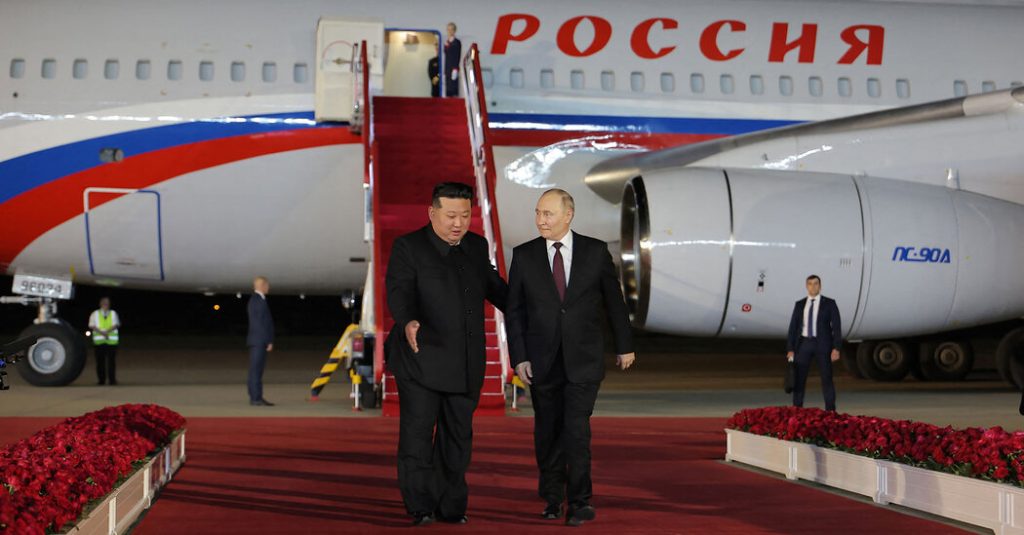President Vladimir V. Putin of Russia and North Korea’s leader, Kim Jong-un, recently signed a new mutual defense agreement that pledged assistance to each other in the event of “aggression.” While the specifics of the assistance were not clarified, the deal symbolizes a significant shift in Russian-North Korean relations, marking a departure from past cooperation with the United States to curb Pyongyang’s nuclear program. The agreement also served as a reward from Mr. Kim to Moscow for military support amidst Russia’s conflict in Ukraine.
Mr. Putin’s visit to North Korea highlighted the importance of the relationship to Russia, as it is one of the few countries capable of supplying Moscow with conventional weapons. The red-carpet welcome given to Mr. Putin in Pyongyang reinforced the bond between the two leaders, with grand ceremonies and a display of close ties. The signing of a strategic partnership document underscored Mr. Putin’s appreciation for North Korea’s support of Russian policy, particularly in the context of the conflict in Ukraine.
The mutual assistance pact between Russia and North Korea has raised concerns among Western powers, especially South Korea, due to fears that it could intensify support for Russia in Ukraine and undermine efforts to halt North Korea’s nuclear program. Mr. Putin’s vocal criticism of U.S. military actions in the region and his defense of North Korea’s right to strengthen its defense capabilities further exacerbated tensions. Additionally, the suspension of U.N. sanctions enforcement by Russia prior to the visit reinforced the alliance between Moscow and Pyongyang.
Both leaders emphasized the strategic nature of their partnership, with Mr. Kim praising Mr. Putin’s support for global stability and balance. Mr. Putin’s long-overdue visit to North Korea showcased the deepening relationship between the two nations and the shared opposition to U.S. domination. The new agreement highlighted the potential for mutual benefits, with North Korea seeking relief from international sanctions and Russia obtaining crucial weapons supplies for the conflict in Ukraine.
The pact presents a challenge to global nonproliferation efforts, as Moscow has diverged from its previous stance on imposing sanctions on nuclear-armed nations like North Korea. This shift signals Mr. Putin’s disdain for the liberal international order and his desire to disrupt the status quo in favor of a more multipolar world. By aligning with North Korea, Russia is sending a strong message of defiance towards Western powers and emphasizing its strategic interests in the region.
The visit also underscored Russia’s reliance on North Korean military support, particularly in providing conventional weapons necessary for the conflict in Ukraine. Despite denials from both sides regarding arms transfers, reports suggest that Mr. Putin has received ammunition from North Korea to sustain its prolonged war effort. The strengthening ties between Moscow and Pyongyang represent a shift in the global power dynamics and highlight the importance of unconventional alliances in the face of geopolitical challenges.


